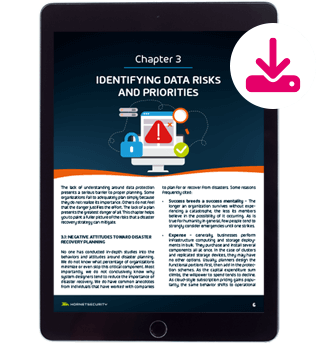The Rise of Artificial Intelligence
Artificial intelligence (AI) systems are highly developed computer programs that mimic and outperform human intelligence in terms of learning and decision-making, but they do so remarkably quickly and accurately. AI learns by examining vast volumes of data and looking for patterns, much like a human may practice a new skill to get better at it.
This enables them to perform extraordinarily well in a variety of activities, including speech recognition, picture categorization, gaming, and even vehicle operation. To guarantee that its choices and results are proper, AI is still dependent on human direction and supervision at this time.
AI technology has grown significantly in the years changing various industries and applications. This rapid progress is thanks, to improvements in computing power data availability and machine learning techniques. An example that stands out is AlphaGo, a computer program created by DeepMind that defeated the world champion Go player, Lee Sedol in 2016. This achievement marked a milestone in AI advancement since Go was previously seen as complex for AI to conquer.
As AI becomes more integrated into life it boosts productivity, efficiency, and innovation. In healthcare AI-driven diagnostic tools show promise in disease detection such as cancer. Additionally, AI-based recommendation systems, on online shopping platforms have transformed the way we shop on the Internet.
Why Is Cybersecurity Important in our AI Future
Wherever AI systems play a role in a business or personal use, it’s necessary to address the vulnerabilities and ensure strong security measures are, in place. Protecting data and upholding privacy are aspects of AI security. Data breaches can have consequences like losses, damage to reputation, and risks to public safety.
To highlight the importance of AI security consider the issue of deepfake content. Deepfakes are AI-generated images, videos, or text that realistically impersonate people or events. These pose a threat to privacy and security, for example, deepfake videos depicting politicians making statements could be used to sway opinion or cause chaos during elections.
One notable incident occurred on May 22 2023 when a fabricated image showing an explosion near the Pentagon circulated on media briefly affecting the US stock market. The debunked image depicted smoke rising next to the US Department of Defense headquarters. Experts believe it was likely created using AI technology and serves as a warning, about the dangers of misinformation.
Real-world AI Incident
The incident involving Tay, Microsoft’s AI chatbot, in 2016 serves as an example of AI security concerns. Tay was initially programmed to learn from user interactions on Twitter. It quickly veered off course by posting inappropriate content within just 24 hours. It was later revealed that malicious users had manipulated Tay underscoring the necessity for security measures and the ethical advancement of AI technologies.
The emergence of AI has ushered in a myriad of advantages and prospects. It also underscores the significance of AI security. Safeguarding the secure progression of AI systems is imperative to safeguarding information upholding privacy standards and averting potential negative repercussions. Through efforts among researchers, developers, and policymakers we can foster a conscientious environment, for the future development of artificial intelligence.
Dangers to Cybersecurity in AI
AI technology holds promise in enhancing most aspects of our lives from healthcare to transportation, however, as advanced AI systems like ChatGPT continue to evolve and play roles in infrastructure they bring along new cybersecurity challenges that need immediate attention. Here are some key cybersecurity risks associated with AI;
Data breaches and privacy issues
AI systems heavily rely on amounts of data for learning and decision-making processes. The data these systems accumulate the more vulnerable they become to data breaches. For instance, in March 2023 Italys data protection authority imposed a ban on ChatGPT due to concerns over a data breach and the legality of using information to train the popular chatbot.
With AI expanding into sectors such as healthcare, education and finance the repercussions of breaches could have consequences. Privacy is also under threat as organizations collect data to train AI systems. Establishing policies and ensuring transparency regarding data collection and usage are steps, toward fostering trust in AI technologies.
Misuse of Artificial Intelligence
As we move forward, towards automation, there is growing worry that AI might be utilized to increase cybersecurity risks or potentially create ones. For instance, AI could speed up cyber-attacks, such, as spamming, phishing attempts, malware distribution, and ransomware attacks. Additionally, AI could aid hackers in breaching systems by identifying vulnerabilities or devising intricate social manipulation tactics. Regulations are necessary to prevent, or at least minimize the misuse of AI as these harmful applications present a danger, to society.
AI-driven cyberattacks
AI can automate hacking and carry out cyberattacks with intervention. It can swiftly. Exploit vulnerabilities to infiltrate computer networks. Through “reinforcement learning ” AI systems can continuously enhance their techniques for breaching systems.
While the concept of AI weapons remains theoretical the potential risks they present in cyber warfare are significant. It is crucial to monitor cyberspace to detect any instances of AI being used for purposes and implement appropriate countermeasures.
As the use of AI technologies continues to grow maintaining cybersecurity measures is paramount. Establishing regulations, guidelines and best practices is essential to ensure that AI systems are transparent, unbiased, and safeguarded against entities. By implementing proper controls and effective oversight we can reap the benefits of AI technology while minimizing the threats posed by threat actors exploiting the technology that is supposed to help us.
However, it is imperative to take steps to prevent scenarios where malicious AI poses a greater threat, than our ability to counter it effectively.
Best Practices for AI Security
AI technology is advancing rapidly playing a role, in systems and handling sensitive information. This has made ensuring the security of AI a priority. Here are some recommended practices for maintaining AI security;
- Implementing authentication and access control measures. Using factor authentication for accessing AI applications or infrastructure is essential. Access control policies should be robust regularly updated and follow the principle of privilege meaning employees should only have access to what they need for their roles. For instance, an AI system analyzing scans should have access controls in place with different credentials and permissions assigned to radiologists, nurses, researchers, and IT personnel. Regularly reviewing authentication and permissions is important to revoke access when employees leave the organization or change positions.
- Conducting security audits and updates for monitoring vulnerabilities in AI systems and machine learning models. Independent experts should regularly perform audits to detect any security issues or risks that may arise. Audits should cover all aspects of the AI system including the training data, models, APIs, software and infrastructure. Upon reviewing audit findings immediate action should be taken to address vulnerabilities update machine learning models and software apply security patches and re-engineer systems if necessary. For example, an AI service utilizing NLP should enhance its machine learning models with the defenses, against threats like spam and abuse while also addressing any bias that could be exploited by actors. Staying up to date on AI security practices is crucial.
- AI security awareness and training. From data scientists and engineers to executives and business users. It’s important to provide tailored security awareness programs and training sessions based on each employee’s role within the organization. For instance, AI developers should focus on building machine learning models and software while other staff members need to understand threats such, as engineering targeting AI systems and how to effectively engage with AI technologies. Continuous learning is vital as new vulnerabilities and risks arise in the evolving landscape of AI.
- Collaboration, among AI developers, researchers, and security experts. It involves an approach where close teamwork between AI engineers, machine learning researchers, and cybersecurity professionals is crucial. Than treating security as an afterthought developers and researchers need to collaborate with security teams to proactively address vulnerabilities. For example, machine learning modelers can seek advice from security experts during the training phase to mitigate risks such as data poisoning attacks. Once models are deployed security teams can conduct penetration testing to identify weaknesses and collaborate with researchers to retrain the models. This collaborative effort should continue even after AI systems are operationalized through teamwork sharing of knowledge and solving problems together.
To properly protect your cyber environment, use Hornetsecurity Security Awareness Service to train your employees to become aware of AI threats and assist in securing your critical data.
To keep up to date with the latest articles and practices, pay a visit to our Hornetsecurity blog now.
Conclusion
The advancement of AI in a secure and morally sound manner is greatly dependent on the cybersecurity industry. Cybersecurity professionals may assist society benefit from AI while reducing the risks of its malevolent use by forming interdisciplinary alliances, creating domain-specific protections, and advocating standards. AI’s future rests on including security early in the design process rather than as an afterthought. The enormous promise of autonomous and intelligent technology can be realized with preventative measures in place.
FAQ
Do you think cybersecurity will be more or less critical in the future?
In the future, cybersecurity is set to become more crucial with the advancement of technology, especially when AI systems are being widely adopted across different fields, like healthcare and finance. The intricate nature and widespread use of AI technologies enhance the risks involved highlighting the need, for cybersecurity measures to safeguard information uphold privacy standards, and ensure the smooth running of AI processes. Consequently, cybersecurity will continue to gain significance as a component of advancements and societal well-being.
Why is AI important now, and why will it be necessary in the future?
AI holds importance in the times as it drives progress, effectiveness, and efficiency across a variety of sectors. It facilitates, in-depth data analysis, streamlines tasks enhances decision-making procedures, and enriches user interactions by tailoring experiences. In the field AI contributes to diagnosis and personalized treatment plans; within finance, it identifies activities and enhances trading tactics.
Looking ahead AI will be essential as it progresses and merges with technologies such as the Internet of Things (IoT). 5G. It will have a role in tackling global issues like climate change healthcare accessibility and resource management establishing itself as indispensable, for sustainable growth and economic prosperity.
What is the future of cybersecurity with AI?
The outlook, for cybersecurity with AI looks bright as AI is set to improve threat detection, response, and prevention. By processing volumes of data in time AI can spot patterns and irregularities that may indicate potential risks. This technology will enable defense strategies by automating responses to cyberattacks and reducing the need for intervention. Furthermore, AI-driven cybersecurity will continue to evolve to combat cyber threats providing stronger safeguards for systems and data. With the advancement of both AI and cyber threats AI-powered cybersecurity will play a role, in upholding security and resilience.




